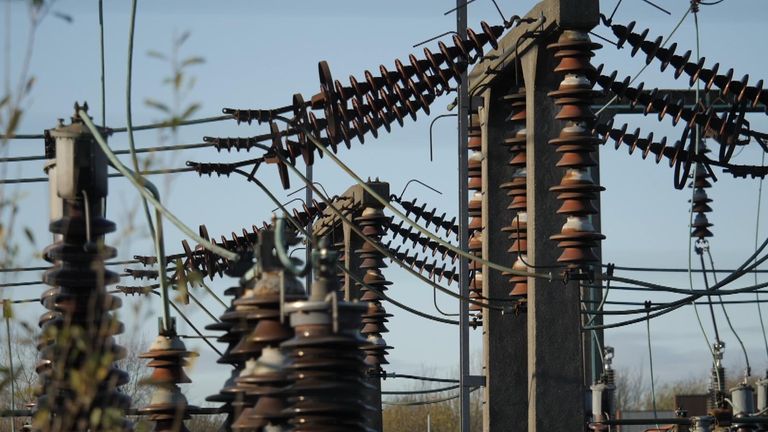The next government is being urged to do more to help drive the transition to electric vehicles as private sales of new pure battery models reverse.
According to May data released by the Society of Motor Manufacturers and Traders (SMMT), there was a 2% drop in UK sales of new battery electric vehicles (BEVs) among consumers compared to the same month in 2023. .
The organisation’s chief executive said this was despite “very attractive offers” to attract buyers.
Mike Hawes warned that manufacturers could not sustain the level of discounts indefinitely and argued that a fairer transition was needed with “carrots, not just sticks” required of ministers to help improve future uptake.
Last elections:
Watchdog examining PM’s claims over Labor tax plans
Analysts said weak demand in the private buyer market was a consequence of cost-of-living pressures on household budgets, coupled with concerns about a lack of affordable vehicles and charging infrastructure.
The overall sales picture was much more optimistic.
26,031 BEVs were registered in May, an increase of 6.2% compared to the same month of the previous year, driven by sales of large fleets.
Hybrids were also a popular alternative. There was a 1.7% increase in total sales of all new models.
The SMMT said of demand for BEVs among private buyers: “This performance… is still below the trajectory required of manufacturers by the government under its Vehicle Emissions Trading Scheme, which requires 22% of new vehicles sold this year to each brand are zero emissions.
Use the Chrome browser for a more accessible video player
2:24
Electric vehicles and the new trade war
“With a choice of more than 100 electric vehicle models now available and a range of attractive offers, manufacturers are committed to driving change, but meeting targets will require more support.”
This hit in March on the government’s decision to delay a ban on the sale of new petrol and diesel cars to 2035, saying it had backfired due to a slowdown in electricity purchases.
The industry had a target of 2030 before the government turnaround in September last year, for cost reasons.
Use the Chrome browser for a more accessible video player

14:34
Revamping the UK energy grid
The SMMT had warned at that time that the measure would harm investment and constitute a setback in efforts to combat of Climate Change.
Their suggestions included the restoration of financial incentives, including decommissioning schemes.
None of the main elected political parties published their manifestos.
Ian Plummer, commercial director at online vehicle marketplace Auto Trader, suggested manufacturers should take some of the blame for poor uptake.
“Rising new car prices since 2019 means that even high-volume brands are suffering as the mid-market is hollowed out,” he wrote.
“The share of new models on sale under £20,000 over the last five years has fallen from 17% to just 4%, underlining the pressure on affordability.”
Jamie Hamilton, automotive partner and head of electric vehicles at consultancy Deloitte, said: “There needs to be more focus on removing the key barriers that stop the average consumer contemplating a switch to electric.
“Currently, electric vehicles don’t seem to make sense for consumers unless they can charge their cars at home overnight.
“As a result, a push is needed to create more charging stations available to the public.
“A number of new low-cost options in the electric vehicle market are expected to arrive this year, which could prompt consumers to transition to electric.”
This story originally appeared on News.sky.com read the full story








































/cdn.vox-cdn.com/uploads/chorus_asset/file/25437422/Screenshot_2024_05_07_at_11.51.58_AM.png?w=150&resize=150,150&ssl=1)